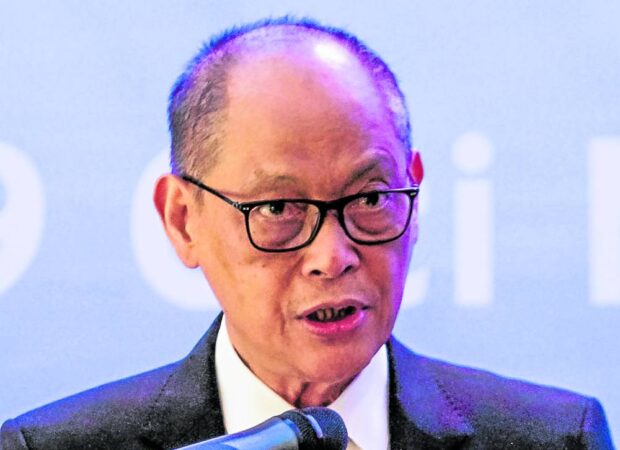Diokno urges local governments to invest in potable water systems

Finance Secretary Benjamin Diokno. (INQUIRER FILE PHOTO)
MANILA, Philippines — Local governments need to take the initiative in investing in potable water systems using their share of the national revenues they receive per the Mandanas-Garcia ruling, according to Finance Secretary Benjamin Diokno.
Diokno urged the local governments to do so even as the government was taking the needed measures to solve long-standing issues on water security in the country.
Meanwhile, the creation of an “apex agency” for matters related to water supply and services is still pending, even if the National Economic and Development Authority (Neda) has been pushing for such for decades.
The creation of a Department of Water Resources as well as a Water Regulatory Commission was identified as an urgent matter in the aftermath of El Niño and a supply crisis that hit parts of Metro Manila during the Duterte administration.
“The administration of President Marcos recognizes that we cannot have a prosperous, inclusive, and resilient society if our citizens are not afforded the basic building blocks of a healthy life,” Diokno said in a statement.
Article continues after this advertisementThe finance chief cited the weak and fragmented institutional setup, competing and changing priorities of water infrastructure, lack of science-based decision support systems, and the unequal delivery of basic water and sanitation services due to inadequate funding and low technical capacities to be the causes of water insecurity in the country.
Article continues after this advertisement“If the sector remains business-as-usual, the water crisis is projected to worsen by 2040,” he said.
Diokno said that, in order to head off such a crisis, the government must upgrade and expand water infrastructure projects in the country.
He said this was already underway as the Neda Board recently approved 194 Infrastructure Flagship Projects that include irrigation, water supply, and flood management.
He added that the Philippine Water Supply and Sanitation Master Plan launched in September 2021 would be used as a guide to achieve universal access to safe, sufficient, affordable, and sustainable water supply, hygiene, and sanitation by 2030.